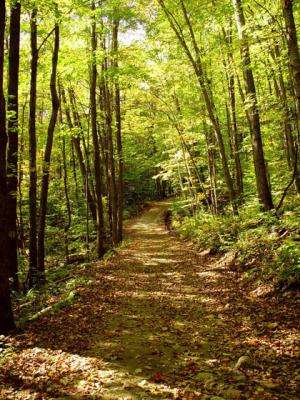A new look at old forests

As forests age, their ability to grow decreases, a new study by Marine Biological Laboratory (MBL) scientists and colleagues has determined. Since most U.S. forests are maturing from regeneration that began about 100 years ago when extensive clear-cutting occurred, the study suggests the future growth of U.S. forests will decline.
"All forests are in succession: They get old, die (due to fire, insects, hurricane, etc.), and regenerate. This paper improves on a fundamental theory in ecosystem development: How a forest evolves over time. It demonstrates that when a forest gets old, its ability to grow decreases because it takes up less carbon dioxide and sunlight and respires less, just like an animal or human being," says lead author Jianwu (Jim) Tang, an assistant scientist in the MBL Ecosystem Center.
The traditional theory had posited that when a forest gets old, it would respire more and use more energy. But Tang and colleagues found both energy production (photosynthesis) and energy consumption (respiration) decrease with age, resulting in an overall decrease in growth rates.
"Forests are also big carbon sinks that offset, in part, human-induced carbon emissions. Our finding also suggests the forest carbon sink may decrease in the U.S. because of the slowdown in forest growth," Tang says. "In some other countries, young forests could grow faster and take up more carbon dioxide. To mitigate human-induced climate change and global warming, we may either plant more forests in non-forested lands, decrease use of fossil fuels, or do both."
More information: Tang J, Luyssaert S, Richardson AD, Kutsch W, Janssens IA (2014) Steeper declines in forest photosynthesis than respiration explain age-driven decreases in forest growth. Proc. Natl. Acad. Sci.: doi/10.1073/pnas.1320761111.
Provided by Marine Biological Laboratory




















